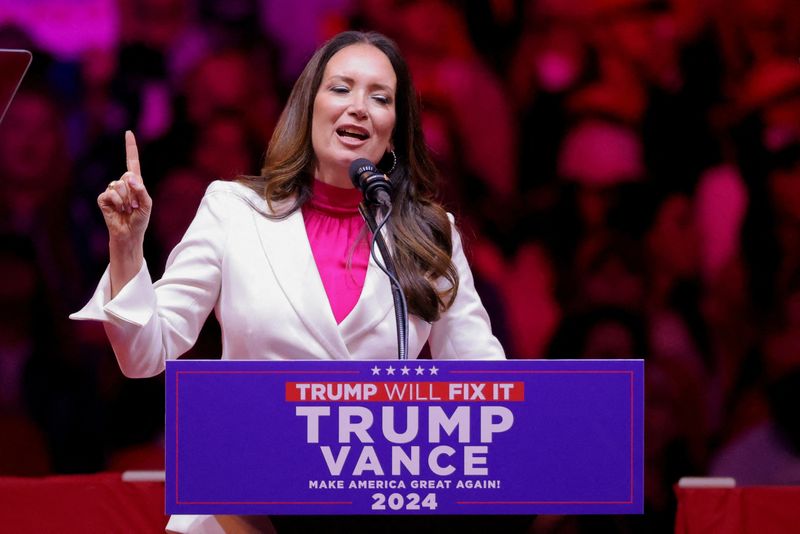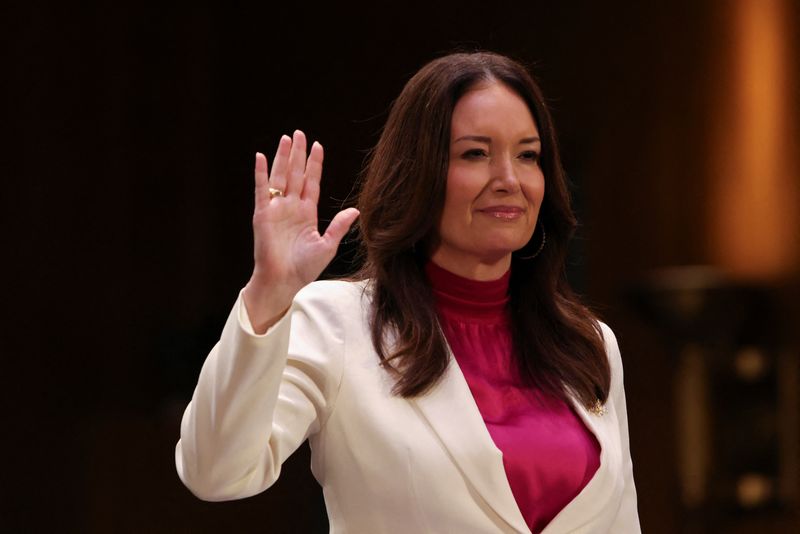
By Leah Douglas
(Reuters) -President Donald Trump’s pick to lead the U.S. Department of Agriculture said on Thursday she would consider direct payments to farmers to offset losses from proposed tariffs, modeled after the approach taken in Trump’s first term.
If confirmed, Brooke Rollins (NYSE:ROL) would lead the $200 billion agency and its nearly 100,000 employees whose broad remit includes nutrition and commodity programs, farm loans, forestry, and trade.
Trump’s tariffs on Chinese imports in his first term resulted in retaliatory tariffs on soybeans. The administration then paid billions to farmers to offset losses.
Trump has threatened to impose tariffs on China as well as Mexico and Canada.
Rollins said during her Thursday nomination hearing before the Senate Agriculture Committee that she has spoken with Sonny Perdue, Trump’s farm secretary in his first term, about how the agency managed the trade war.
“We are prepared to execute something similar, if approved, if confirmed,” she said, later adding, “we can’t reinvent the wheel.”
Some senators on the committee challenged the approach.
“What we’ve heard from our farmers and ranchers over and over again is they want to be able to do the work. They want to be able to export. They don’t want to solve this problem by getting aid,” said Michael Bennet, a Democrat from Colorado.
Rollins, who led the White House Domestic Policy Council under Trump’s first term, said she would prioritize expanding access to trade markets and reducing the country’s $42 billion agricultural trade deficit.
Rollins was also questioned about her record on ethanol. Reuters reported on Wednesday that a Texas policy group helmed by Rollins repeatedly criticized the politically important biofuel for raising prices and receiving undue government support.
Rollins said the organization put out hundreds of papers and comments every year and that she did not author any that were critical of ethanol. She said she would support all energy sources.
Asked whether the USDA would protect immigrant farmworkers from Trump’s mass deportation effort, Rollins said she would listen to the labor needs of farm businesses but that she had not been involved in conversations about the deportation plan and could not answer whether farms would be targeted.

Rollins also said that the country’s H2A visa program for seasonal farm labor needed to be reformed, but did not provide details.
Farmworkers, about half of whom are undocumented, have been concerned about potential raids and farm industry groups have urged the administration not to carry out raids at farm and food businesses.
This post is originally published on INVESTING.




